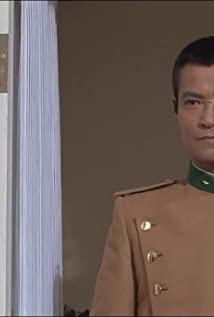Since when, it seems that the simple folk customs is not so popular; it is more of the concept of "poor mountains and bad waters make troublesome people". Many times, after people are broken by the utopian island of "Peach Blossom Land", they welcome people. Come blowout criticality. In more cases, the countryside does not only represent the truth, the good and the beautiful. Most of the countryside is synonymous with the coexistence of poverty, ignorance, and backward and bad habits.
There are many similar plots in "Dog Town" and "Jin Funan's Murder Case", etc. It is speculated that it may be some inspiration from this film, or maybe it is human nature. Lawful conformity (in a derogatory sense), and desire just hinders and grows it. Under the patriarchal domination of the general society, in the film men's desire for sex and the most primitive reproductive needs, women seem to have become the high status of the matriarchy, although this status is materialized.
When the eldest son finally hugged his mother, he was a little taller at first, and then hugged his mother tightly like a sinner. The mother returned to the mother body, the mountain god, but he could not see her again. The attachment to the mother body and the worship of motherhood are here A lot is shown in the film. Young people always worship women when they are doing things. It is a mentality that is both worshipping and wanting. In such extremely poor areas, people take reproduction as the top priority. Maybe I don't like it very much. I have seen similar plots before. I would think "why make life harder when I can't eat and have children." Now think about it, people in this extremely poor village must maintain their lives through worship and reproduction, the two most primitive emotions. Desires permeate these two emotions, and worship may also be an effective way to display their desires: worshiping women may be a If you want to have sex, worshiping mountain gods may be in order to get forgiveness of your misdeeds and redemption of the soul (similar to the sinful Christians). The extreme poverty of productivity makes primitive motherhood a resource, and reproduction and sexual activity are no other pleasures than recreational activities.
The final shot is set on the bellybands of many people in the family. These bellybands have totems and prints. The camera turns one by one, and the new woman has a child in her belly. This sad custom seems to be passed down from generation to generation. What makes them stick to these customs so much, maybe some people resist, but in the end they are looking for a suitable reason to maintain the customs (the son sees Xue and believes that this is a good time to let go of his obsession and let his mother go up the mountain).
In this film, the mother is like a mountain god, and the last scene of the mother's hands is devoutly folded, like a statue, like an ascetic in a cave, on the snow-filled mountain, it is the Virgin Mary, the call of God and the belief that make everyone stick to the rules to maintain customs . When he hugged his mother, the eldest son was still like a child who made mistakes. He was kneeling and begging for forgiveness for sending his mother up the mountain, but the mother was all-encompassing, like the original form of life - the amniotic fluid wraps the fetus, and the mother is forever. It is the presence of nutrients for children. Mothers may be cruel - just like Mother Earth will produce earthquakes, she will also brutally kill grandchildren's women, but she will also provide warm support and harbor for younger generations. Treat your mother like the natural world, and love-hate relationships are the norm.
This mother reminds us of the Virgin, not an ordinary Virgin, but the Virgin of the Seven Sorrows in Spain, emotional and fragile, radiant, parading the streets, wearing tattered clothes, but exuding incomplete radiance and spirituality. Leading human beings is the enforcer of the rules, the cruel indirect killer, the emptiness of the Buddha, the sin of Christ, and the fundamental goodness of Confucianism.
View more about The Ballad of Narayama reviews










